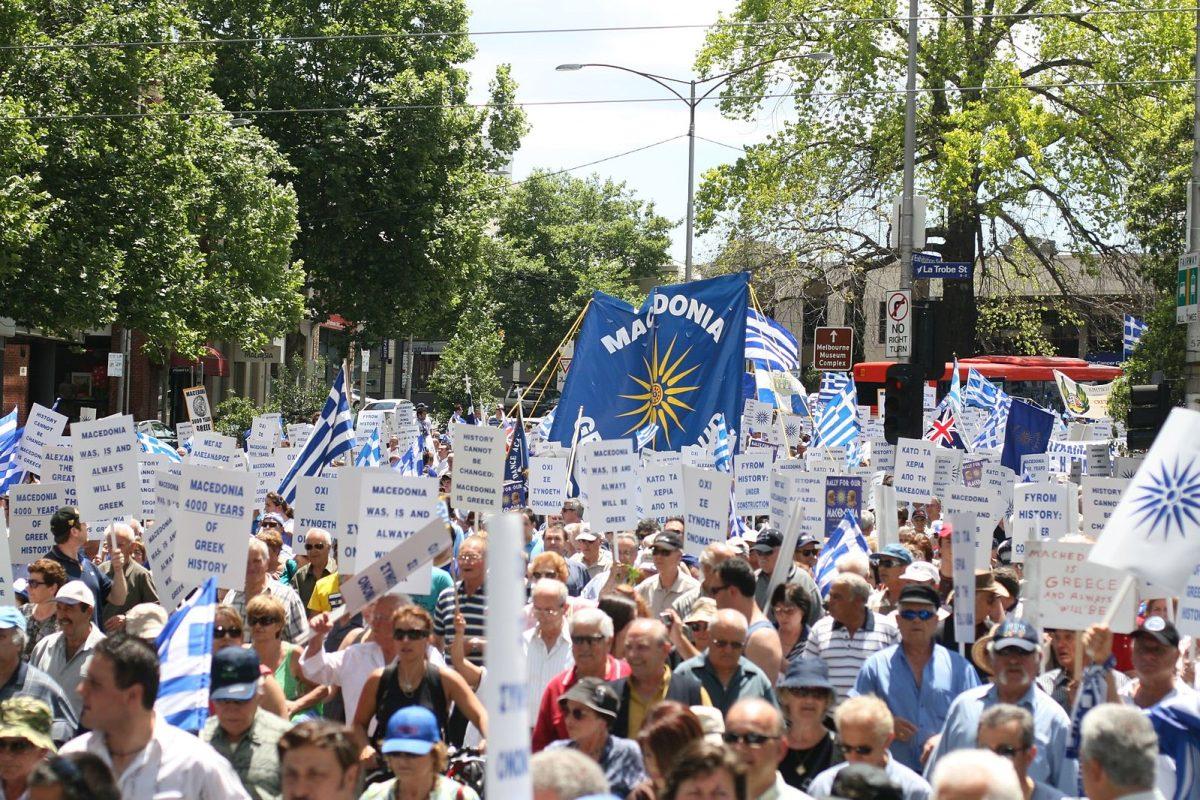Greece could be settling a long-standing naming dispute with the Republic of Macedonia over the use of its name, which has Greek cultural and historical roots.
The two countries have been in conflict about the name “Macedonia” since the early 1990s. Greek officials claim the name is associated with their own country’s deep-rooted historical and cultural national identity, so it wouldn’t be right for Macedonia used that name. However, Macedonians believe they are now part of that region and have accepted the culture for themselves, making the name a natural fit. When the nation joined the EU in 1993, it entered under a provisional description as “the former Yugoslav Republic of Macedonia” in consideration of the naming dispute.
The culture and history embedded in the name and region is what makes this dispute much more complicated than it looks, according to Bilge Firat O’Hearn, assistant professor of international studies.
“It’s complicated, obviously, because it packs history, cultural conflict and political interest all at once and packages it into a small abbreviation,” O’Hearn said. “So when you try to solve it, you have to address all of these troubles from past disputes that didn’t remain resolved for a long time.”
In the early 1990s, the Republic of Macedonia was part of former Yugoslavia. When it broke up, people and nations started referring to the country as Macedonia. Since then, it has continued to be recognized by many countries, including the United States.
“Even international experts and [European Union] elites, when they talk, it’s ‘Macedonia,’” O’Hearn said. “When you say Macedonia, nobody thinks that you mean the northern part of Greece. You mean the country of Macedonia.”
Macedonia has been under great strife since the issue arose. It was on its way to becoming a member of the EU and NATO since Yugoslavia collapsed, but has been blocked by Greece because of the naming differences.
Angelos Liveris, Class of 2004, is originally from Greece. He said the official Greek position is that the name Macedonia is not acceptable for a couple of reasons.
“One is that the geographical region [of] Macedonia is a peak region,” Liveris said. “Most of it is in Greece and part of it is in Bulgaria and a big part of it is also in [the Republic of Macedonia]. So speaking like them, getting the name without any additional explanations, the name that is for example, known as Macedonia, that [doesn’t] explain that it is only part of a region.”
Liveris pointed to the background of the name as a second problem, and said it refers to Greek history.
“Greece claims that since there is a continuity of history from the ancient times and the conquerors of that time, for them to continuously live there all the time, it would be a pity,” Liveris said.
According to an article from The Guardian, the dispute has led to a negotiation process, mediated by the United Nations. Greece has welcomed an announcement from Macedonian Prime minister Zoran Zaev.
“I know that if we have friendly relations and a good approach then a solution is feasible,” Zaev said [where].
Talks are in progress to alter the name and to pronounce the Macedonian borders in order to dispel territorial claims over Northern Greece. Upper Macedonia, New Macedonia and Northern Macedonia are among the new names being considered.
“It’s reasonable that if it’s Macedonia with another descriptive term, that it’s a fair name,” Liveris said. “They feel like the people living in this country are more linked to the location and feel that this identifies them. It’s good to be fair toward the rest, so if it’s something like New or Upper Macedonia or something like that, it would sound reasonable.”
In light of these compromises, protests have broken out across both countries, with citizens fighting for their claim over the name.
“Whatever you call the name of the country, which is very important in international political discourse, the region is known as Macedonia to many people,” O’Hearn said. “Whether you abbreviate it in international political institutional standards or not, ordinary people from around the world from Europe and other parts do know the place still as Macedonia.”
Despite the protest attempts, prime ministers from both countries have agreed that a compromise is necessary. Many people, including powerful government officials, believe that because Macedonia is a name already recognized in many countries, it is unreasonable to expect a complete change.
“I am confident that they’re going to find a solution, because it’s just not viable [to continue arguing],” O’Hearn said.
Solving this dispute could help Macedonia be admitted into the EU and NATO, giving Greece the opportunity to continue their diplomacy with the neighboring country.
“Other than this dispute, Greeks have good relations with this country,” Liveris said. “Both sides should compromise a little.”
What’s in a name?
February 19, 2018
Photo by Creative Commons
Greek-Australians hold a “Macedonia is Greek” rally in Melbourne on Nov. 18, 2007.
Donate to The Battalion
Your donation will support the student journalists of Texas A&M University - College Station. Your contribution will allow us to purchase equipment and cover our annual website hosting costs.




















